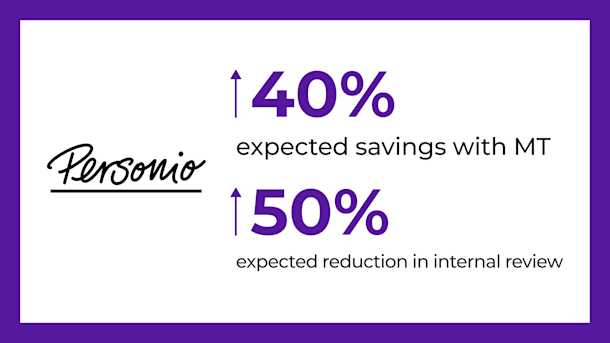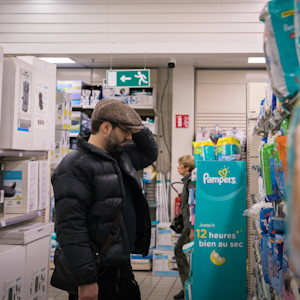Personio, founded in 2015, makes it easier for businesses to manage their workforces efficiently. The company’s software platform streamlines and automates HR and talent management tasks for small and medium-sized businesses and offers many features for managing employee data, payroll, recruitment, time tracking, absence management, performance management, and more.
Personio’s customer education team builds product and people expertise at scale. They develop various types of content, including Help Center articles, Voyager Academy courses, release notes, newsletters, and more. To best support Personio’s entire customer base, the team has made it a top priority to make support content available in several languages.
Challenge
Personio understands that good customer service — especially when provided in a customer’s native language — is a differentiator. However, it was clear to all involved that Personio’s existing workflow was not scalable.
The team would manually copy and paste German source content from Zendesk and email those files to a translation agency in Australia. Linguists would translate the content into English and email Personio the translations, which Personio would copy and paste back into Zendesk. The cadence worked well — given time zone differences, files could essentially be translated overnight — but the process was cumbersome and manual. Translating into additional languages would be impossible.
In addition, while in-house resources could write and review some content, limited bandwidth was a roadblock to scaling those efforts. Personio, therefore, wanted a solution that allowed them to use their in-house resources when desired but easily supplement with external resources as needed — without disrupting the workflow or jeopardizing quality. Everyone working on the content must have access to the most up-to-date linguistic assets to guarantee quality and consistency.
Solution
Personio partnered with Smartling to eliminate manual tasks, centralize their localization efforts, and translate the company’s support documentation at scale while maintaining a high level of quality.
Now, requesting translations is simple. Smartling’s Zendesk integration means Personio can send files for translation — whether to their translation partner in Australia, to internal resources, or to Smartling’s translation solutions — directly from Zendesk into many languages with just a few clicks.
In addition, Personio’s glossary, style guide, and translation memory are stored in the Smartling platform. External linguists and internal reviewers alike can refer to these linguistic assets while working on the content in Smartling’s CAT Tool (Computer Assisted Translation), ensuring consistency and making it easy to maintain quality standards. Once content is translated, approved translations are automatically added to Personio’s translation memory and applied to future translations.
Finally, as translation volumes increased and adding languages became a viable option, Personio’s content education team began using Smartling’s neural machine translation (NMT) solution. That has boosted efficiency and, at the same time, kept costs down by producing high-quality output that can be sent straight to Personio’s internal reviewers.
Results
These changes have delivered significant time and cost savings. For example, Personio’s content education team expects that implementing NMT will help them save 40% of their current translation budget. They also anticipate that by leveraging NMT, they will be able to slash the time spent on internal review by at least half.
Most importantly, Personio is now able to scale its localization efforts, making it easy to speak its customers’ languages and provide top-notch multilingual customer service to HR departments across Europe.
Future plans include reinvesting the money saved by expanding their language offerings, an undertaking that is now feasible thanks to Personio’s partnership with Smartling. Personio’s content education team also hopes to do this without increasing the number of internal reviewers. Instead, they plan to implement an NMT plus human post-editing workflow using external resources and to monitor quality with Smartling’s comprehensive quality assessment program. Finally, the team will continue to move toward a fully automated translation process that kicks off immediately following the publication of their source content and ends with the publication of polished, high-quality translations in all target languages.








